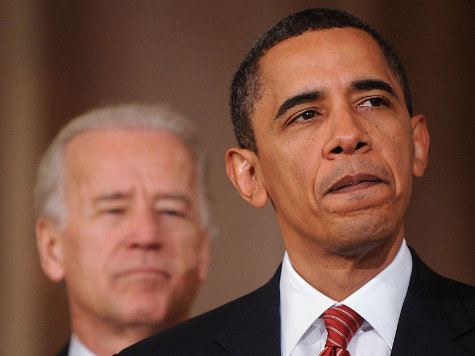
With Congress out of session next week, due to the Presidents’ Day holiday, it looks inevitable that the sequestration cuts will take effect March 1st. Replacing the $85 billion in cuts scheduled through the rest of the fiscal year isn’t necessarily difficult itself, but Republicans and Democrats are deeply divided over whether or not increased revenues should be used to off-set the cuts. Democrats insist that some portion of the cuts be replaced with new tax hikes.
Dem Sen. Ben Cardin admitted late last week, “We’re pretty far away because we have revenue in ours.”
A Senate Democrat plan unveiled Thursday would replace most of the $85 billion spending cut, with $55 billion in new taxes. Their plan comes just over a month after Congress raised taxes by around $60 billion a year as part of the “fiscal cliff” deal. The GOP is adamant that new taxes can’t be part of any deal to avoid sequestration.
The sequester was first proposed by the Obama White House during the debt ceiling talks in 2011. It provided for mandatory across-the-board cuts to discretionary programs, with the Defense Department bearing around half the cuts. Full sequestration would trim $1.2 trillion in spending over the next decade. The cuts take effect unless Congress approves an equivalent amount of deficit reduction.
The cuts take effect March 1st, although they don’t occur all at once. Sequestration will trim $85 billion from the budget between March and the end of the fiscal year, September 30th. The spending reduction only represents around 2% of the overall budget, but its impact is that its a cut from already appropriated, and budgeted, spending. It will require agencies to make changes to their current spending, rather than just adjust their planned future spending.
Federal agencies will likely furlough workers for a few weeks through the end of the fiscal year. There will be cut-backs in hiring and possible lay-offs at companies dependent on government business and contracts. Certain regions of the country will be impacted more than others. The overall effect on the economy is likely to be minimal, however. The cuts for this year equal only 0.6% of the economy.
That said, the sequester will provide some small amount of pain across the government, especially in Defense. Even that, though, is just a skirmish in the long-running battle to get the deficit, and debt, under control. Far bigger battles loom ahead.

COMMENTS
Please let us know if you're having issues with commenting.